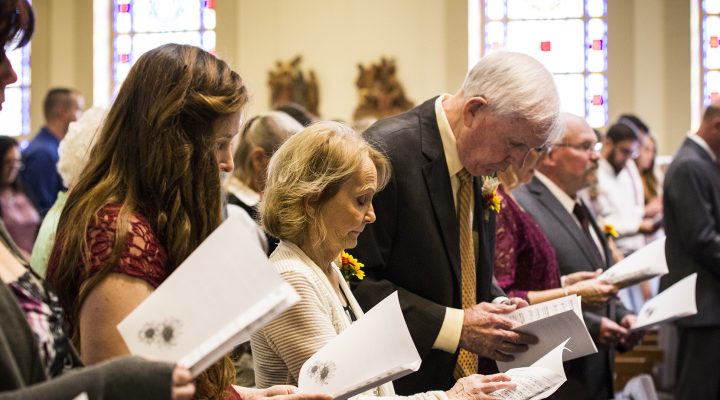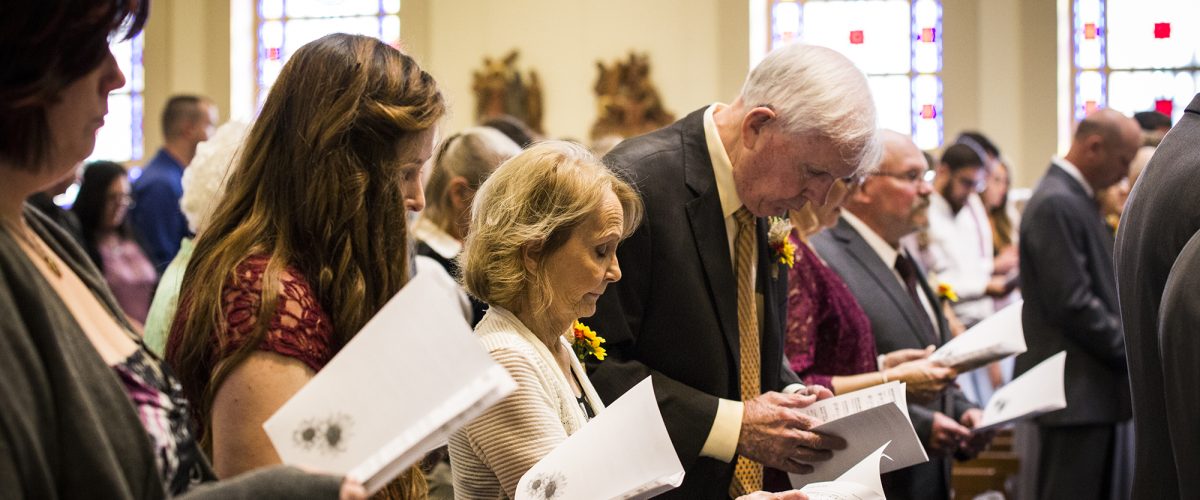I am a part of the resistance. While I sense I am not all alone, I also sense my number is small, especially so in my own ecclesial family of moderate to progressive Baptists.
Many of the current responses to the steady decline of the church in America strike me as accommodation, even a raising of the surrender flag. Instead of accommodation and surrender, my preferred response of resistance calls for Christians to be faithful to their local church even as American culture becomes more secular and makes church participation less convenient.
I am not overly concerned about American culture becoming more secular, as America is a democracy and not a theocracy. What does concern me is an increasing number of Christians giving less priority to their local church.
“What does concern me is an increasing number of Christians giving less priority to their local church.”
Here are examples of the surrender response to the decline of the church:
John Burnett of National Public Radio narrates a piece with the title, “As attendance dips, churches change to stay relevant for a new wave of worshippers.” This piece features Pastor Chris Battle, who three years ago “walked away from more than three decades leading Black Baptist churches.” He did so because the traditional church no longer connected with people.
Now, Battle leads Battlefield Farm and Gardens in Knoxville, Tenn. This organization grows vegetables and sells them to the local farmer’s market. The organization also, once a week, collects leftover produce from different areas of Knoxville and delivers it to public housing communities.
Similarly, Bradley Hyde leads the congregation he serves, Bearden United Methodist Church, to gather produce that has not sold from local vendors. Then, once a month, the congregation gives the vegetables to members of the community from their church parking lot.
NPR’s Burnett talked with Hyde at Golden Roast coffee shop, now housed in what was Knoxville’s Marble City United Methodist Church. Marble City merged with another congregation because of a steep decline in its membership. Hyde reports that every year his Methodist conference closes between two and five churches such as Marble City. However, collecting and giving away produce has been a “game-changer” for Bearden UMC to connect with its community.
Jamie Hampton and her husband stopped participating in traditional worship services six years ago because traditional worship did not meet their needs. Now, they attend Sunday evening services at the Episcopal Church of the Ascension in Knoxville to breath under stained glass. On Sunday evenings, about 30 people sit on yoga mats under candle-lit stained-glass windows in the sanctuary. The rector and associate rector lead the group in breathing exercises so the participants’ human breath might connect with the divine breath.
In each of the accounts above, as reported by Burnett, the role of traditional gathered worship — songs of praise, prayer, sermon — is minimized due to its irrelevance. And in each of the accounts above, the role of community service or an alternative generic spiritual practice is accented due to its relevance.
In contrast with this either/or approach to declining church participation, especially among Millennials and Generation Z who consistently tell us traditional gathered worship does not speak to them, I suggest a both/and approach.
Service to the church’s local community in Jesus’ name always has been essential to Christianity. The congregation I serve as pastor, First Baptist Church of Ahoskie, N.C., is much engaged in community service. Our congregation owns and maintains a house that is used by Christian Women’s Job Corps as a transitional house for women and their children. Anna and LaCount Anderson, Cooperative Baptist Fellowship field personnel, are in Ahoskie each Tuesday to meet with people in need and to distribute the benevolence monies of the church. And we have more projects on the horizon.
“Gathered worship is what gives the church its edge, its distinct voice.”
Nonetheless, I regularly remind our members that gathered worship is what gives the church its edge, its distinct voice. Gathered worship, specifically Christian worship, is what sets the church apart from other community organizations.
I learned years ago that reading facial expressions is a fraught task. People can look disinterested and, in fact, hang on every word you say or every note the piano releases. Or people can look disinterested and be disinterested. From my Sunday perch on the chancel, some people sometimes appear disinterested during worship.
One of my hobbies is to look at worship services on church Facebook pages. I do this not in pursuit of any sort of spiritual discipline. Rather, I do this to see how populated church sanctuaries are. And everywhere I look, I see lots of wood and space — lots of bodiless pews and lots of pews with just a couple of people. In other words, many church sanctuaries look much more empty than full. Thus, I assume interest in gathered worship is on the decline. As with Jamie Hampton and her husband, gathered worship does not meet the needs of many people — or so it appears.
And therein lies the problem. Church leaders need to (re)teach people the meaning of worship. Gathered worship is not about meeting anyone’s needs, although it can be personally satisfying. Worship is an expression of thanksgiving to God. Individual circumstances matter not. Perhaps the sun shines in our lives. Perhaps the rains pour in our lives. The Christian community, during all of life’s cycles, gives thanks to God for the gift of God’s Son, Jesus the Christ.
I wrote the liturgy below — a responsive reading — as a means of resisting the decline of the church. It is a small contribution of resistance. However, the contribution feels significant, more lasting than my previous 12-Sundays challenge.
First Baptist Church of Ahoskie begins each Sunday morning worship gathering reciting this liturgy together. I am pleased that many of our people have it memorized. Furthermore, I am hopeful each time I see our children mouth these words without a bulletin in hand.
We gather not to be blessed, but to bless.
We gather not to receive, but to give.
We gather to bless God, and to give thanks and praise to God for the life, ministry, death, resurrection and coming again of Jesus the Christ.
Now, let us worship together with zeal. Amen.
What do we do in response to the decline of the church in America? We can give up, throw in the towel, accommodate. Or we engage our communities and resist with a healthy theology of worship.

Paul R. Gilliam III
Paul R. Gilliam III serves as Pastor of First Baptist Church of Ahoskie, N.C., as well as director of the religion program at Chowan University. He is also the author of two books: Ignatius of Antioch and the Arian Controversy and the forthcoming William Whiston and the Apostolic Constitutions: Completing the Reformation.
Related articles:
The air of gathered worship: A 12-Sunday challenge | Opinion by Paul Gilliam
Why we gather for in-person worship | Opinion by Jim Conrad
I’d rather swim than worship | Opinion by Bill Wilson


